More than half of Americans believe TikTok data ends up with the Chinese government yet say it should not be banned by a small margin
More than half of Americans believe data collected by popular social media app TikTok will end up with the Chinese government, according to the latest 2024 JL Partners/DailyMail.com poll.
But the enormous enthusiasm for the site among young users has left the public divided over whether the app should be banned.
The results indicate that Americans are becoming more wary of the Chinese app as lawmakers consider legislation that could result in the company being banned from phones in the US.
In a survey of 1,000 likely voters online, 52 percent said they believe Chinese Communist Party (CCP) officials could gain access to social media data, including that of TikTok’s 170 million U.S. users.
Even taking into account the 3.1 point margin of error, Americans still largely believe the data in China is accessible.
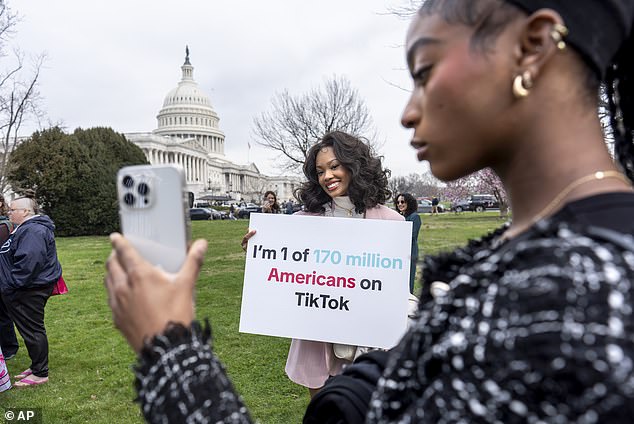
TikTok fans arrived on Capitol Hill earlier this month to protest a bill that could ban the app in the US if its China-based parent company ByteDance does not divest the company
On the other hand, 18 percent of Americans don’t think the Chinese government has access to TikTok’s data, while 30 percent answered “Don’t know.”
Age is a major factor among those who believe TikTok data will end up with the Chinese government.
The CCP does not have access to TikTok’s data. 44 percent of 18 to 29 year olds responded. This was the cohort most likely to think so.
While a majority of people over 65 believe the opposite, 65 percent say the CCP has access to the data. Only four percent of people in that age group said the data was not accessible to the Chinese government.
But Americans don’t necessarily think the app should be banned.
By a narrow margin, 39 percent of likely voters believe the app should not be banned, while 36 percent of voters believe it should.
However, 24 percent responded that they don’t know.
Again, age seems to be the main dividing line between those who think the app should and should not be banned.
As many as 64 percent of likely voters aged 18 to 29 said the app should not be banned.
While 47 percent of people over 65 think that TikTok should be banned.
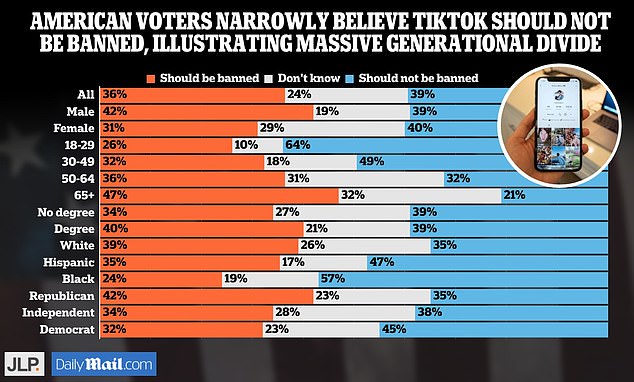
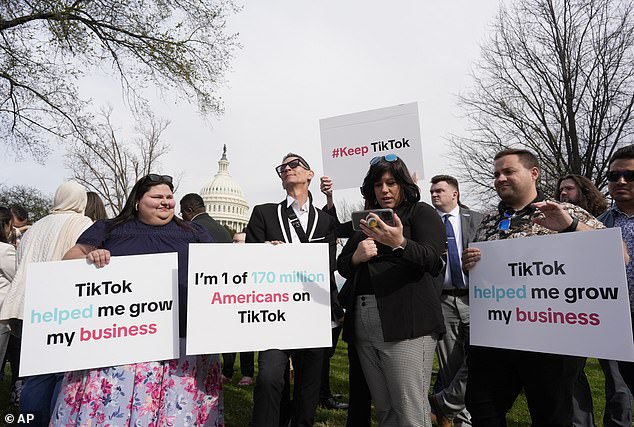
Earlier this month, TikTok sent notifications to its users urging them to call their lawmakers to argue against the bill, which could lead to the app being banned. As a result, congressional offices received thousands of calls, with some callers even threatening to harm members if they voted in favor of the bill.
Overall, the survey also found that Americans have a net negative view of the app.
Only 27 percent said they had a positive view of the app, while 37 percent said they had a negative view of it.
“Americans may not like where they think TikTok data ends up, but they are still using it and don’t want it banned,” James Johnson, co-founder of JL Partners, told DailyMail.com.
“There are two things at play here: despite all the negative attitudes about social media or technology, we just can’t stop using them for their convenience and entertainment value.”
“Second, while some may have a negative view, they may not want to see it banned, perhaps moving toward less government action and regulation of companies – even if their intentions are nefarious.”
And TikTok could very well be banned.
Earlier this month, the House passed a bill on a 352-65 vote that would force ByteDance – TikTok’s China-based parent company – to divest the app within 165 days or face a ban in the US.
The bill flew through the House and passed with ease just a week after it was introduced.
The House China Select Committee, which formed the bill, says CCP officials through ByteDance are using TikTok to spy on the locations of its US users and dictate its algorithm to carry out influence campaigns, making it a national security threat.

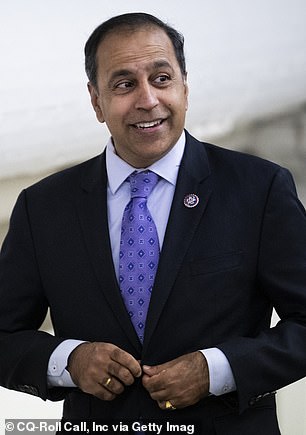
Leaders of the bipartisan China Select Committee have warned that the CCP has access to TikTok’s data and has used that information to spy on Americans and journalists
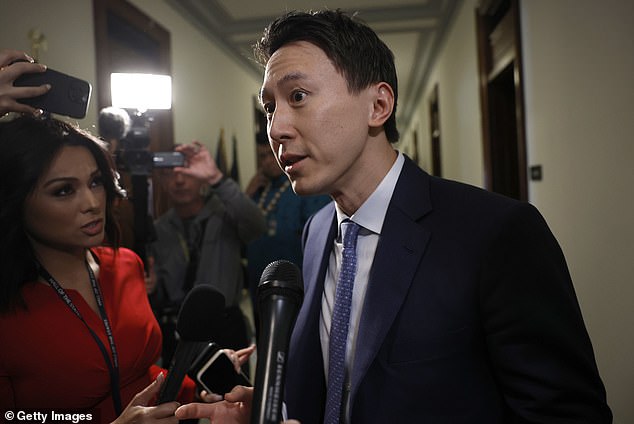
TikTok CEO Shou Chew has said the bill would ban the app, indicating ByteDance has no intention of parting with the popular video-sharing platform.
The legislation is now being debated by the Senate, and if they decide to pass the bill, President Joe Biden has said he would sign it into law.
And the Senate has been busy learning about the threats the app poses.
Earlier this month, officials from the FBI and the Office of the Director of the National Intelligence and Justice Department hosted a meeting with senators to brief them on the Chinese company’s security implications.
“My response to this briefing is that TikTok is a gun pointed at the heads of Americans,” Sen. Richard Blumenthal, D-Conn., told DailyMail.com after leaving the meeting.
“The urgency of this clear and present danger should prompt immediate action.”
The Senate also held a hearing with TikTok CEO Shou Chew in January, where lawmakers criticized the executive branch over safety concerns surrounding the platform and the way it has been used as a tool for child exploitation.
Senate Majority Leader Chuck Schumer, D-N.Y., meanwhile, has not indicated if or when the House-passed bill will come up for a vote.
“The Senate will review the legislation when it comes out of the House of Representatives,” is all he said about this.
